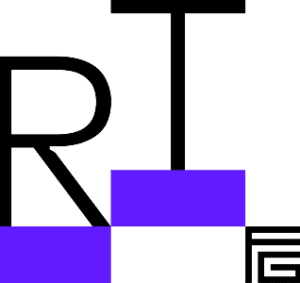 Managing a profitable hotel requires a careful eye on your inventory. You don’t want to sell your rooms too early at reduced rates because such spillage can drain your revenue. However, spoilage, overbooking, and overselling can also wreck your profits.
Managing a profitable hotel requires a careful eye on your inventory. You don’t want to sell your rooms too early at reduced rates because such spillage can drain your revenue. However, spoilage, overbooking, and overselling can also wreck your profits.
Careful revenue management reviews historical data to spot trends in demand and competition so you can forecast with accuracy. It blends marketing, demand forecasting, technology, and competitive analysis to guide your hotel’s inventory management.
Revenue Management Works
Even during the tough years of 2020 and 2021, hotels practicing revenue management prior to the pandemic came out ahead. While many analysts predicted the rebound would take three or four years, it didn’t. Many hotels returned to 2019 levels and even exceeded RevPar by 15 to 40% as early as 2021.
That’s the power of revenue management.
Context and Planning for a Profitable Future
Every successful revenue management approach requires future forecasting. Yet, to forecast, one needs to know what came before. In our experience, the hotels that remained open through the pandemic and maintained their staff kept a close eye on market conditions and their revenue management.
Such hotels emerged from the pandemic with more online visibility and stronger coffers than hotels that closed during the pandemic. Many of these hotels achieved a positive GOPPAR (gross operating profit per available room) and EBITDA (earnings before interest, taxes, depreciation, amortization.)
That is, remaining open and carefully managing their revenue allowed them to maintain profitability even during the worst hotel crisis the industry has seen. Not only did they manage profitability, but they also returned to pre-pandemic levels of profitability quicker than hotels that shuttered.
Such success stories are grounded in the complex discipline of revenue management.
Revenue Management Helps Exceed Your Guest Expectations
Perhaps the best part of revenue management is that it also helps your hotel meet or exceed your guests’ expectations while hitting your financial goals.
For example, you know today’s guests want greater flexibility and expect modern technology. They want to book online and within a shorter window of travel. They also want the flexibility of canceling if their plans change, which means smart hoteliers include a flexible cancellation policy.
Every hotel needs an updated online presence. Up-to-date pictures and current reviews help your property find more visibility on the OTAs. Such visibility helps you get more direct bookings through emails, phone calls, and website reservations. It also gives you more chances to enhance revenue through parking, F&B, and other related services. All of this benefits the TRevPAR (Total Revenue per available room.)
A foundational piece of revenue management is avoiding spillage, spoilage, overbooking, overselling, denials, and regrets.
Let’s look at these frequently misunderstood terms and common sources of lost revenue.
Spillage, Spoilage, Denials, and Regrets are Revenue Drains
Even if you’re a seasoned hotelier, it’s worth reviewing these terms as we interpret them within revenue management.
Spillage is when you sell too many rooms too early and at an under-market rate. Spoilage is holding onto your rooms until the last minute, and now you’re left trying to unload them at discount rates.
Appropriate pricing is a balancing act. While the goal may be 100% occupancy at market rates, a lot must happen to achieve this. For example, if you load the channel manager with inventory and sell out your rooms weeks or months before guests check in, you’ve lost revenue to spillage.
The revenue management approach is to sell just enough rooms early and increase your rates as you get closer to check-in.
You can reduce spillage when you identify some of the most common reasons for it.
Hotels encounter spillage due to the following:
- Incorrect starting prices (too low)
- Failure to identify upcoming events and market demand
- Lack of dynamic rates (or incorrect rates)
- No sales monitoring or control on the booking window
- Lack of control or incorrect pricing through Tour operators, wholesalers, and various allotments
It’s likely at least one or two of these sound familiar. If you’re unsure where your spillage happens, choose one of these to improve at a time and work your way through them. For example, if you pre-sold all your rooms at a low rate early and then discovered Taylor Swift’s tour was in your city, then you can make a habit of checking area event calendars for future events. Better yet, review historical data during the same timeframe. Most areas have periods of high demand around the same time each year. When are yours?
Next, you can review your business contracts with tour operators and event planners to ensure they’re profitable. If you don’t have the right technology to review data, coordinate inventory, and handle rate dynamization, then it’s time for an RMS and PMS.
You can manage your revenue when you have an at-a-glance view of your inventory, area events, and competition.
Revenue management is strategic, and today’s technology allows you to drip inventory as needed. Dynamic pricing increases rates as demand increases.
Spoilage is the opposite of spillage. Instead of selling inventory early at below-market rates, spoilage means you’ve held on to your inventory too long. Now, you have more unsold inventory than is optimal, and you’re offering last-minute discounts.
Not only do you risk losing revenue via low rates again, but you also risk cancellations. Why cancellations? Guests who booked at one rate can see the new, lower rate and cancel. Maybe they rebook at the lower rate. Either way, you’re losing revenue.
Of course, hotels sometimes start out with a higher than market rate, which also sends people to book elsewhere.
Appropriate hotel rates require experience, technology, and analysis.
Here are some common symptoms of hotel spoilage.
- Incorrect starting prices (too high)
- Possible stay restrictions (Minimum Stay – Non-Refundable Rates)
- Dynamic rates that move too fast
- Not monitoring the booking channel
- Lack of statistical analysis
If any of these are possibilities for your hotel, then you’re losing revenue.
To recap, with spillage, you sell rooms too early for low rates, while spoilage leaves you frantically trying to sell at last-minute rates. These are not recipes for long-term stability and profitability.
Connected to spillage and spoilage are denials and regrets.
Denials and Regrets: Close Cousins to Spillage and Spoilage
You’ve probably had guests email or call about booking. If you’re already booked, you have to deny them the room.
In revenue management terms, we call these “denials,” and they’re often tied to spillage. You can track denials in your PMS or RMS and use them to guide future pricing.
Imagine your hotel books out six months in advance. This is often a combined spillage and denial problem. By reviewing historical data, you may see many early bookings at low rates. You can avoid this by limiting the inventory on your channel manager until you can evaluate market demand.
By balancing your inventory release and past data and proper forecasting, you won’t have to deny potential guests. Or, if you do, you’ll be booked at appropriate rates.
Regrets are similar to the abandoned cart. Your prospective guest starts to book, but they stop part way. They may have found a better price at another hotel, or maybe they didn’t like your non-cancellation policy.
Whatever the reason, it makes sense to record these “regrets” in your PMS or RMS tool to compare later.
Denials and regrets usually signal spillage and spoilage problems. Start recording them in your software so you can see when and how often they happen. That gives you the information you need to assess the underlying cause(s). Then, you’ll be able to reduce or eliminate them, and you’ll have more happy guests and higher revenue.
Finally, we come to the problems of overbooking and overselling.
Overbooking and Overselling Can Work Strategically
Spillage and spoilage are classic signs of hotels lacking revenue management. Yet, overbooking can be strategic revenue management tactics that maximize your revenue.
Take overbooking. Revenue managers examine the data and may calculate it’s a good idea to sell more rooms than appear available. The goal is to make up for these common scenarios:
- last-minute cancellations
- Early check-ins or late check-outs
- No shows
- Invalid credit cards
- Inclement weather
Revenue managers pay attention to the statistical variables to compensate for this potential lost revenue. It can work well.
Successful overbooking requires deposits or pre-authorized credit cards to protect your revenue. Then, you can check the credit card’s validity ahead of time. You can also learn to gauge last-minute cancellations and find the right balance.
The problem is if all the guests show up. Then you’re oversold, and you have no choice but to find them lodging elsewhere.
Fortunately, strong data analysts can help make appropriate predictions.
What Hotels Can Expect in 2024
Every hotelier knows travel is in demand. Yet, not every hotelier has made the switch to accommodate the guests’ demands of flexibility and online everything.
How can you manage your profitability while meeting guest expectations?
It starts by assessing your most in-demand periods along with your location and competition. For example, summer resorts can hold back inventory until closer to the warmer months. If you make too much available in February and March at a low rate, you risk spillage. Instead, you can release additional rooms as you get closer. Leisure travelers are booking within shorter windows, so it’s expected that your best average daily rate (ADR) will book within a few short weeks of their arrival.
Of course, to make this work, it’s essential to closely monitor your competition, daily historical data, and guest segmentation. Plus, your hotel must have a strong online reputation. If your hotel doesn’t have recent reviews, updated listings, and high scores on Booking.com and other OTAs, then it’s time to make that a priority.
The summer travel season is coming.
As a hotelier, you play the challenging revenue management game, which is to achieve 100% occupancy at the highest possible ADR.
Data Drives the ADR Boost
As you can see, revenue management is a blend of technology, online presence, and data analysis. For the greatest ADR, a trained analyst needs to monitor the day-to-day data for forecasting.
An RMS provides the past data. Your Revenue Manager can review past trends and assess where spillage or spoilage occurred and how to adjust. Revenue management is an ongoing process of analysis. By comparing past weeks and seasons with cancellations, denials, and regrets, a picture emerges for future profitability.
The Revenue Team by Franco Grasso offers this tip to start your revenue management journey. Review your cancellation and no-show data over the past weeks and season. If you have a high number of invalid credit cards, implement a policy of pre-checking them prior to high-demand periods. Then, ensure you apply the right overbooking tactic, such as a pre-authorization, to reduce last-minute cancellations and no-shows.
The revenue management techniques you implement today will help you avoid spillage or spoilage revenue loss and increase your ADR.
For more ways to improve your hotel’s profitability, download the 5 Revenue Management Tips ebook for successful revenue management. No matter where your hotel is located, you’ll discover ways to prevent spillage and spoilage. Monitor your inventory with market demand and competitive rates and you’ll enjoy greater profits.
Click here to download the ebook “5 Revenue Management Tips for Hotels.”
































